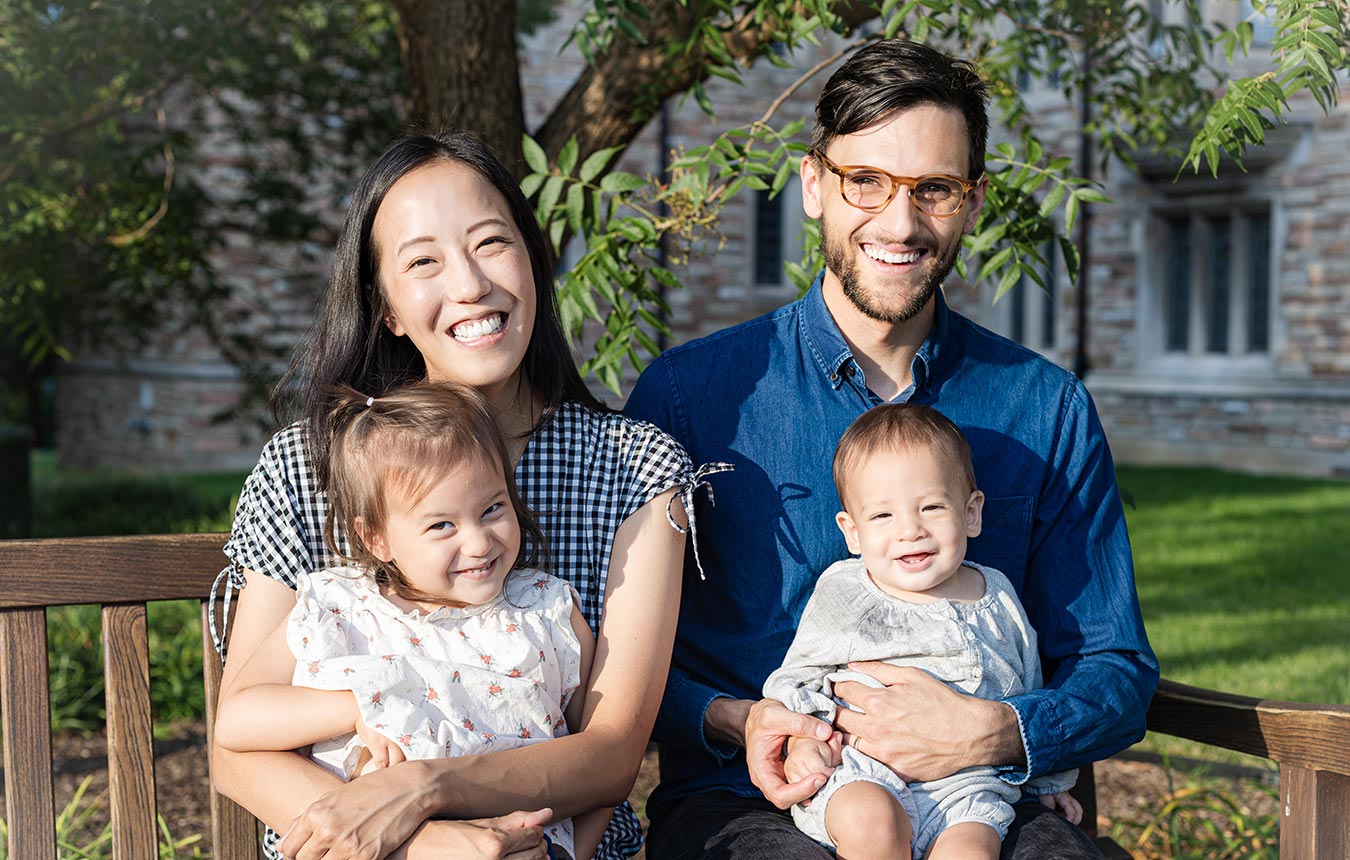
Concordia Seminary Newsroom
Being the Body of Christ
Seminarian shares life with others

by Lucas Moody
Serving Christ and neighbor has been a part of Justin Hilton’s life for as long as he can remember. When he was 10 years old and living in New Hampshire, his father left for a four-month mission trip to Ethiopia. The elder Hilton returned one year later to help build a hospital in the Ethiopian mountains — this time, with his wife and kids in tow.
The family’s missionary life continued when they began traveling to African countries aboard Mercy Ships, a nondenominational organization operating hospital ships and providing free surgical care to children with limited medical access.
“The community on the ship was tightly knit. There were many incredible, loving Christians,” he says. “We belonged to all backgrounds but shared our lives, which is a basic Christian practice.”
Life on the ship helped prepare Hilton’s heart for service. It’s also where he met his future wife, Grace, while they were children on the ship. Her father is a pastor, and her family was, like Hilton’s, helping carry out Christ’s Word of hope and healing. Together, before they were married, Justin and Grace were baptized as teenagers on a beach in Liberia.

Looking back, Hilton was surprised at how Baptism was treated on the ship. “It was a total afterthought. No adults talked to us about getting baptized, and if one of the other teenagers hadn’t had the idea herself, I don’t think it would have happened there,” he said. Because of the varied Christian beliefs and practices of the people onboard, there was no common confession of faith, and much of the community viewed the Sacraments as symbolic. After his family left the ship and he finished high school in Texas, Hilton began to contemplate questions of Christian practice, including that of Baptism and what it means.
When he was 18, he began studying history at Brooklyn College in Brooklyn, N.Y. He also started studying theology and found a congregation near campus that had been planted by Redeemer Church, part of the late Rev. Tim Keller’s church planting initiative, “Redeemer City to City.”

“Though the church was Presbyterian in name, its pastor ‘leaned heavily Anglican’ according to him and followed the Common Book of Prayer. It was my first exposure to liturgical worship, and I appreciated the structured approach,” Hilton says. “It inspired me to learn more about how Protestant practices compared to those of the early church, and as I did, I found that much of the church has not followed the example or understanding of the first Christians.”
Shortly after this time, Hilton and Grace married, and he joined her in Korea, where she had been living after spending time in Germany and Texas following her family’s time with Mercy Ships. There, the Hiltons attended a nondenominational church where Grace had established many strong relationships, but they remained open to opportunities to worship in a more liturgical setting. Their introduction to Lutheranism came not through a congregation but rather through an online theological discussion.
“While we were in Korea, I had been speaking with the followers of one of my favorite theologians through their Discord server (social platform) for patrons. There happened to be Missouri Synod Lutherans in the group, and I was impressed by their theology,” Hilton says. “I did some more research and found the Book of Concord, and as I read through it, I thought, ‘This is awesome.’”
His interest in Lutheranism was piqued. Hilton knew about a Lutheran church in the area known as International Lutheran Church (ILC) in Seoul. He had passed it many times while walking around the city and recalled its distinct red front door. He contacted the pastor, Rev. Carl Hanson, and upon attending, “instantly loved it,” he recalls. The Hiltons began attending the Lutheran church as a family, and their children, Epiphany and Ira, were baptized there.

Hanson, a Doctor of Philosophy student at the Seminary, played a significant part in redefining how Hilton thought about a pastor’s role. In the nondenominational setting, and especially in the context of mission work, pastors often seemed to be “somewhat vague figures,” Hilton says. “On the ship, there were community meetings, but there wasn’t a head pastor responsible for the care of his people like in more traditional congregational settings,” Hilton recounts. In contrast, Hilton says Hanson’s leadership style “was highly involved. He and his wife, Chenhsi, took a deeply personal interest in the people the church served.”
“I felt called to take the time to get to know them and to do small things like invite them to breakfast or over to play board games,” Hilton says. “It struck me that a pastor is supposed to look for opportunities to take care of people
and speak about Christ with them all the time.”
With much prayer and encouragement from his Lutheran church leaders in Seoul, Hilton applied to the Master of Divinity Program at Concordia Seminary. He is now in his first year of the four-year residential pastoral formation program. Hilton and his wife look forward to sharing their lives and serving others in Christ’s name.
“Grace and I want to serve those who feel alone by offering them a place to eat, feel at home and talk about life and God,” Hilton says. “No matter where He takes us, we are committed to His plans.”
Lucas Moody is a first-year Master of Divinity student at Concordia Seminary, St. Louis.